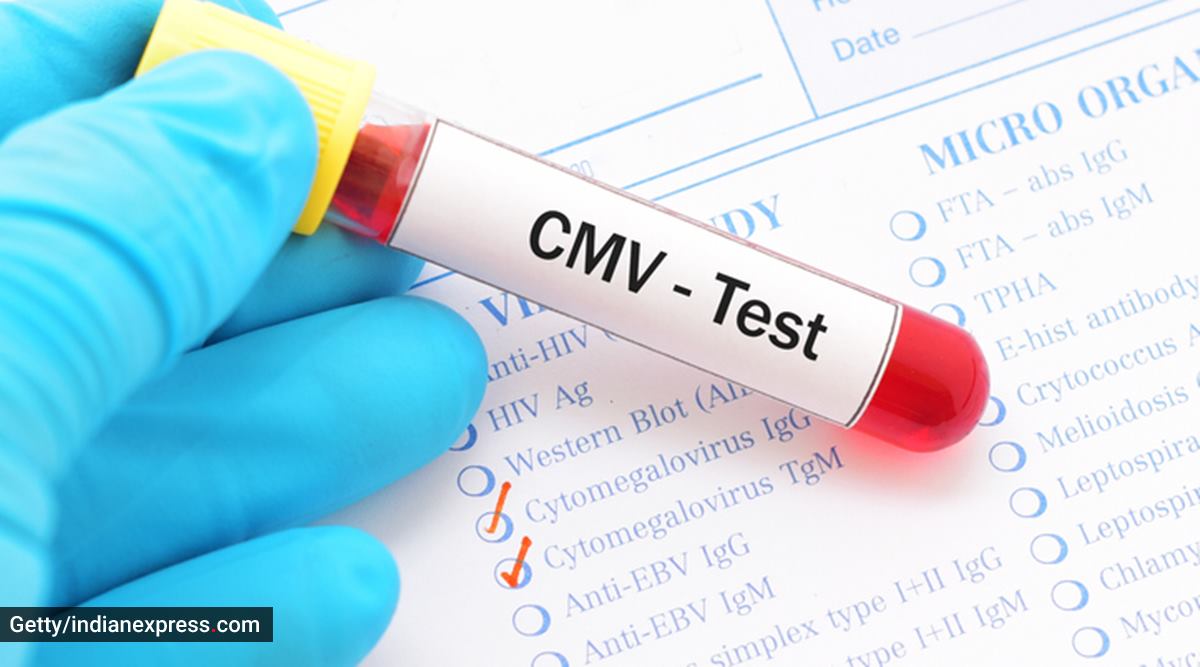 A person can catch CVM infection through contact with an infected person’s saliva, blood, urine, semen, vaginal fluids, or breast milk. (Photo: Getty/Thinkstock)
A person can catch CVM infection through contact with an infected person’s saliva, blood, urine, semen, vaginal fluids, or breast milk. (Photo: Getty/Thinkstock) Every day, we are learning about newer risks associated with the coronavirus. As such, it becomes important that we exercise caution when stepping out and follow all Covid safety protocols mandated by the government.
Among the many threats associated with the infection, it has now been learnt that cytomegalovirus (CMV) is steadily on the rise. In fact, some hospitals are already believed to have reported cases of rectal bleeding and abdominal pain in patients around 20-30 days after detection of Covid-19. The reason is the suppression of immunity due to the Covid infection, and excessive use of steroids that gives CMV a chance to attack patients.
Dr Kirti Sabnis, Infectious Disease Specialist at Fortis Hospitals, Mulund and Kalyan, explains that CMV, or Human Herpesvirus 5 (HHV-5) is one of the “most common persistent infections”.
“CMV occurs as a natural infection in childhood and remains asymptomatic in patients with normal immunity. Once infected, your body retains the virus for life. Most people don’t know they have CMV because it rarely causes problems. It usually affects those who are immuno-compromised, like suffering from cancer, AIDS, or those who have recently had transplants.
“A person can catch CVM infection through contact with an infected person’s saliva, blood, urine, semen, vaginal fluids, or breast milk,” she says.
The Covid connection
According to the doctor, the Covid infection itself — and the medicines used for its treatment (steroids) — suppresses the immunity of patients and makes them susceptible to uncommon infections.
“All patients presented with low lymphocyte count (6 per cent to 10 per cent as against a normal of 20 per cent to 40 per cent) indicating Covid-induced suppression of immunity can be predisposed to symptomatic reactivation of CMV infection.”
The symptoms
While most people with acquired CMV have no noticeable symptoms, if they occur, they may include:
– Fever
– Night sweats
– Swollen glands
– Joint and muscle pain
– Low appetite and weight loss
Dr Sabnis also says the symptoms generally go away after two weeks. “Symptoms of recurring CMV, however, vary depending on which organs the virus has affected. Areas likely to be affected are the eyes, lungs, or digestive system.
Typical features may include:
* Fever
* Diarrhea, gastrointestinal ulcerations, and gastrointestinal bleeding
* Shortness of breath
* Pneumonia with hypoxemia, or low blood oxygen
* Mouth ulcers that can be large
* Problems with vision, including floaters, blind spots, and blurred vision
* Hepatitis, or inflamed liver, with prolonged fever
* Encephalitis, or inflammation of the brain, leading to behavioural changes, seizures, and even coma
Dr Sabnis cautions that a person “with a weakened immune system, who experiences any of these symptoms, should seek urgent medical attention”. People who have battled severe Covid should be cautious.
For more lifestyle news, follow us: Twitter: lifestyle_ie | Facebook: IE Lifestyle | Instagram: ie_lifestyle
- The Indian Express website has been rated GREEN for its credibility and trustworthiness by Newsguard, a global service that rates news sources for their journalistic standards.

